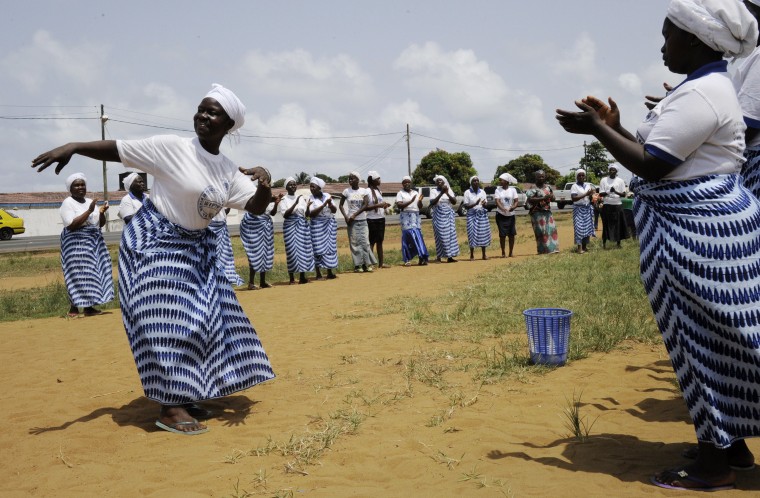After 10,564 cases of Ebola and 4,176 deaths, the World Health Organization (WHO) on Saturday declared Liberia free of the disease.
Liberia had been one of three West African countries, including Guinea and Sierra Leone, that served collectively as ground zero for the 15-month Ebola epidemic.
The nation is now the first of the three to be declared Ebola-free.
RELATED: Ebola can lurk in survivors’ eyes, study finds
"Although we may see a great improvement in combating the pandemic, the global community, however, must understand that the fight against Ebola is not yet over,” Dr. Nkosazana Dlamini-Zuma, chairperson of the African Union Commission, said in a statement on Saturday. “As such, strengthening healthcare systems and surveillance systems should continuously remain at the core of responding to the disease until the African continent is free of Ebola."
The WHO declared Liberia eradicated the disease following 42 days with no recorded cases — that's twice as long as the maximum incubation period. Thousands of citizens including nearly 200 Liberian healthcare workers died after contracting the disease.
But more so, the spread of the disease throughout West Africa — and the hysteria that followed — exposed many gaps in region's health services and exposed the sheer fragility of the country and region’s health care systems.
“The Liberian government and the Liberian people have worked hard to achieve 42 days of zero Ebola cases, but that hard work could be undone in an instant," Mariateresa Cacciapuoti, head of Doctors Without Borders mission in Liberia said in a statement. "We can't take our foot off the gas until all three countries record 42 days with no cases."
"It's time for health needs to be addressed as a priority," Cacciapuoti added. "Liberians must feel confident they can go to hospital once again and have their health care needs looked after. The international community must support Liberia — and Guinea and Sierra Leone — in rebuilding a strong and affordable national health system with adequate human and material resources."
While Liberia is the first of the three ground-zero country’s to be deemed Ebola-free, and reported fewer cases than Sierra Leone, it was the hardest hit among them.
Ebola killed 4,716 in Liberia, whereas 3,904 died in Sierra Leone and 2,387 in Guinea.
RELATED: Ebola epidemic was ‘avoidable,’ caused by slow global response
Last week, with the Ebola-free declaration on the horizon, the Centers for Disease Control and Prevention revised its guidance for Americans wishing to travel to the area. Instead of avoiding nonessential travel to Liberia, the center now recommends visitors “practice enhanced precautions” when there.
“The country can get back to business,” Dr. Thomas R. Frieden, director of the disease centers, told The New York Times. “It’s a tribute to the enormous hard work done by Liberians, by the C.D.C., by partners throughout the U.S. government and the international community.”
Still, people traveling from Liberia to the U.S. are still required to take part in a 21-day monitoring program.
“That’s something we’ll be discussing in the coming days with other parts of the U.S. government,” Frieden said.
The WHO has also urged Liberia to be vigilant for the next three months and maintain a “heightened surveillance” as nearby countries continue to grapple with the disease and isolated and remote areas of the country remain vulnerable.
“We may have stopped the hotspots," Rajesh Panjabi, chief executive of Last Mile Health, a non-profit aid organization doing work in Liberia, told Nature. "But the blind spots — remote villages with little or no access to healthcare — still exist."
